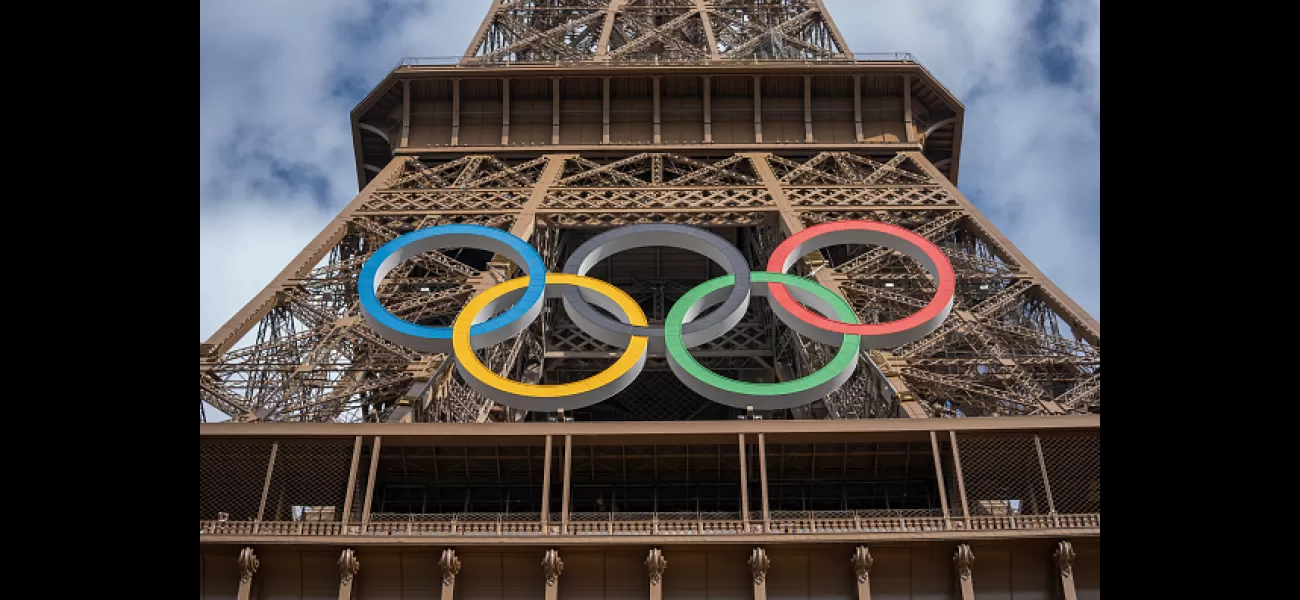How much do Olympic athletes earn?
Paris will be a lucrative destination for a handful of athletes.
July 23rd 2024.

In just a few days, the highly anticipated Paris 2024 Olympics will kick off, bringing together thousands of athletes from all corners of the globe. The world's top talents in sports like athletics, cycling, swimming, tennis, and even breakdancing will gather in the beautiful French capital with one ultimate goal in mind - to be crowned an Olympic gold medalist.
However, for some, there's more than just glory at stake. This will be the first Games where prize money will be up for grabs in certain sports. So, let's delve into the topic and explore just how much these Olympians can earn. While some may rake in millions, others will have to return to their full-time jobs in just a matter of weeks.
Now, you may be wondering, do Olympians actually get paid? Well, the answer is both yes and no. The International Olympic Committee, who oversees the Games, does not directly pay the participating athletes nor do they offer any prize money to the medalists. This aligns with the Olympics' roots as an amateur competition that celebrates athletic success rather than financial rewards.
However, that doesn't mean Olympians can't earn money through other means. Many athletes receive payments from their respective National Olympic Committees, such as the British Olympic Association, and can also seek out sponsorships and endorsement deals.
In fact, this year's Olympics will see a historic change in the world of track and field, as the World Athletics has announced that they will offer prize money to gold medal winners. Similarly, the International Boxing Association will also be awarding over $3.1 million to their medalists. This decision has sparked controversy, with some arguing that it goes against the spirit of the Olympics.
So, just how much money can Olympic athletes make? According to the World Athletics, gold medalists in track and field events will receive a whopping $50,000. Meanwhile, the International Boxing Association will offer the same amount to their gold medalists, with $25,000 and $12,500 going to silver and bronze medalists respectively.
Of course, the amount of prize money varies from country to country. For instance, the United States gives out $37,500 to their gold medalists, while smaller nations like Singapore have offered a staggering S$1,000,000 to potential gold medalists in the past. Despite the generous rewards, some countries, like the British Olympic Association, do not offer any prize money to their competitors. However, Team GB members in medal contention do receive an annual stipend to support their training.
But let's not forget that for many athletes, competing in the Olympics is not their full-time job. Some have to juggle training and competing with a regular 9-5 job. For example, Team GB runner Georgia Bell will finally make her Olympic debut in Paris, but she had previously stepped away from the sport and was working in cyber security before earning her spot on the team.
In some cases, the pursuit of their Olympic dreams has led athletes to take on unconventional side hustles. British diving duo Jack Laugher and Noah Williams made headlines for creating OnlyFans accounts to fund their training, while Aussie canoeist and firefighter Aly Bull, American fencer and medical school student Kat Holmes, and USA basketball star and systems engineer Canyon Barry also have interesting side jobs.
But perhaps the most unusual side hustle of any Paris Olympian belongs to Australian beach volleyball player Zachary Schubert, who runs his own cricket farm called Schubugs Cricket Farm. It just goes to show the dedication and determination of these athletes to achieve their goals, no matter what it takes.
However, for some, there's more than just glory at stake. This will be the first Games where prize money will be up for grabs in certain sports. So, let's delve into the topic and explore just how much these Olympians can earn. While some may rake in millions, others will have to return to their full-time jobs in just a matter of weeks.
Now, you may be wondering, do Olympians actually get paid? Well, the answer is both yes and no. The International Olympic Committee, who oversees the Games, does not directly pay the participating athletes nor do they offer any prize money to the medalists. This aligns with the Olympics' roots as an amateur competition that celebrates athletic success rather than financial rewards.
However, that doesn't mean Olympians can't earn money through other means. Many athletes receive payments from their respective National Olympic Committees, such as the British Olympic Association, and can also seek out sponsorships and endorsement deals.
In fact, this year's Olympics will see a historic change in the world of track and field, as the World Athletics has announced that they will offer prize money to gold medal winners. Similarly, the International Boxing Association will also be awarding over $3.1 million to their medalists. This decision has sparked controversy, with some arguing that it goes against the spirit of the Olympics.
So, just how much money can Olympic athletes make? According to the World Athletics, gold medalists in track and field events will receive a whopping $50,000. Meanwhile, the International Boxing Association will offer the same amount to their gold medalists, with $25,000 and $12,500 going to silver and bronze medalists respectively.
Of course, the amount of prize money varies from country to country. For instance, the United States gives out $37,500 to their gold medalists, while smaller nations like Singapore have offered a staggering S$1,000,000 to potential gold medalists in the past. Despite the generous rewards, some countries, like the British Olympic Association, do not offer any prize money to their competitors. However, Team GB members in medal contention do receive an annual stipend to support their training.
But let's not forget that for many athletes, competing in the Olympics is not their full-time job. Some have to juggle training and competing with a regular 9-5 job. For example, Team GB runner Georgia Bell will finally make her Olympic debut in Paris, but she had previously stepped away from the sport and was working in cyber security before earning her spot on the team.
In some cases, the pursuit of their Olympic dreams has led athletes to take on unconventional side hustles. British diving duo Jack Laugher and Noah Williams made headlines for creating OnlyFans accounts to fund their training, while Aussie canoeist and firefighter Aly Bull, American fencer and medical school student Kat Holmes, and USA basketball star and systems engineer Canyon Barry also have interesting side jobs.
But perhaps the most unusual side hustle of any Paris Olympian belongs to Australian beach volleyball player Zachary Schubert, who runs his own cricket farm called Schubugs Cricket Farm. It just goes to show the dedication and determination of these athletes to achieve their goals, no matter what it takes.
[This article has been trending online recently and has been generated with AI. Your feed is customized.]
[Generative AI is experimental.]
0
0
Submit Comment





